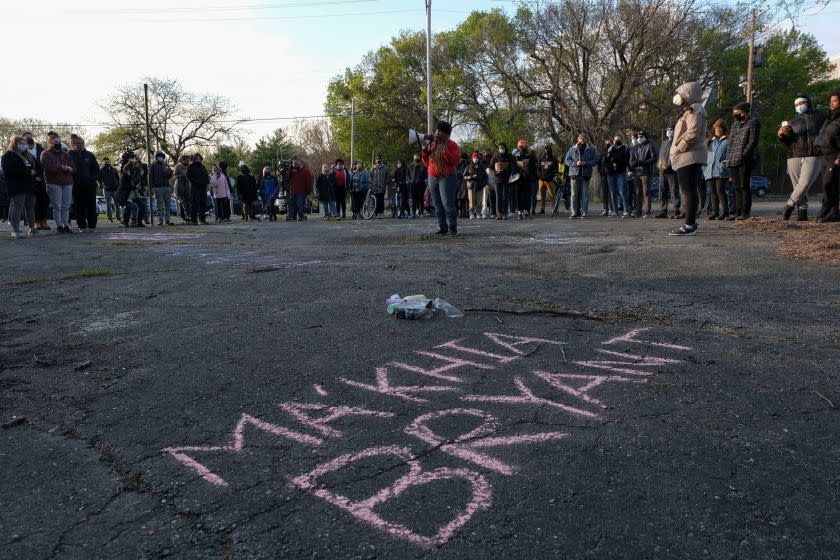Letters to the Editor: Don't ignore that Ma'Khia Bryant was holding a knife and seemed ready to use it

To the editor: Being a career criminal defense attorney and father of two young adult Black men poised to leave home, I worry whenever my grown children leave the house, give regular refreshers on how to interact with the police, and follow news of police shootings pathologically.
In this context, I started reading Sharhonda Bossier's op-ed article on Ma'Khia Bryant's killing with great interest.
Bossier's childhood was unfortunate, and I'm sure it likely paralleled Bryant's in significant respects. However, any discussion of this tragedy that does not address the fact that at the time the officer shot her, Bryant appeared to have a smaller Black girl pinned against a car and, knife in hand, appeared to be within a split second of stabbing her, falls far short.
The young girl Bryant was close to stabbing had a right to live. I do have a question as to why the officer fired four rounds rather than perhaps two, but the bigger question isn't so much what did the officer do wrong, but what happened to this girl to make her so violent, and what services did she need that she did not get.
Lloyd E. Handler, Los Angeles
..
To the editor: Bossier's recollections about her teenage years and her continued presence on this planet to live out a full life are the kinds of stories we need to show the significance of the mindless ending of young lives.
Bryant didn't have to die. Most likely she did because she was Black.
Recently in the L.A. Times-owned Daily Pilot, we read about a young 23-year-old white man, Johnny Santos Moreno, who survived prior occasions of refusing to obey police without being shot, and went on to beat a transgender woman with a skateboard.
It would seem that the same restraint officers exhibited for Moreno would have left Bryant alive and well too.
Jim Hoover, Huntington Beach
..
To the editor: Bossier's piece is so devoid of context that it is meaningless.
She states, "Some people have pointed to Ma'Khia Bryant's size as threatening, and justification for the officer's use of lethal force." No, it was that Bryant had a knife and appeared ready to stab someone that seems to have compelled the police officer to shoot her.
Incredibly, Bossier does not mention the knife attack. Instead, she castigates the officer for not using "nonlethal de-escalation efforts."
The courageous officer had no more than a second to decide if he was going to save Bryant's target. What de-escalation efforts can occur in a second? The officer performed his duty and likely saved someone who would have been stabbed.
The officer shot Bryant for the most fundamentally reasonable of all uses of force: self-defense or the defense of innocent bystanders. Race had nothing to do with this. Many, if not most, police shootings are justified.
Susan Schechter, Calabasas
This story originally appeared in Los Angeles Times.

